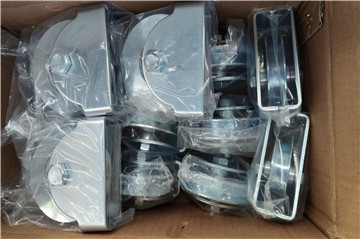What are the different types of ironworks?
Views: 1050 Update date: Jan 11,2024
Ironworks refer to facilities or establishments where iron and steel are produced, processed, or fabricated. There are several types of ironworks, each specializing in different aspects of the iron and steel industry. Here are some common types:
Iron Ore Mines:
Iron ore mines are the starting point of the iron and steel production process. Iron ore is extracted from mines and then processed to obtain iron.
Blast Furnaces:
Blast furnaces are large structures where iron ore, coke (a carbon-rich material), and limestone are melted and chemically reduced to produce pig iron. Pig iron is the intermediate product in the production of steel.
Steel Mills:
Steel mills are facilities where pig iron is further refined and processed to produce various types of steel. This involves the removal of impurities and the addition of alloying elements to achieve desired properties.

Rolling Mills:
Rolling mills are used to shape and form the steel into various products such as sheets, bars, and structural components. The steel is passed through rollers to achieve the desired thickness and shape.
Forging Plants:
Forging plants specialize in shaping metal through the application of force, typically by hammering or pressing. Forged steel is often used in applications requiring strength and durability.
Foundries:
Foundries produce cast iron and cast steel products by melting metal and pouring it into molds. This process is used to create a wide range of components and parts.
Steel Fabrication Shops:
Steel fabrication shops take steel in various forms (sheets, bars, etc.) and cut, bend, and assemble it to create specific structures or products. This can include everything from bridges and buildings to machinery and consumer goods.
Wrought Iron Works:
Wrought iron works traditionally focused on handcrafted iron products, often characterized by a distinctive, decorative appearance. While traditional wrought iron is less common today, modern equivalents may include
decorative iron work in construction and art.
Steel Recycling Facilities:
These facilities collect and process scrap steel for recycling. Recycling is an essential aspect of sustainability in the iron and steel industry.
Specialty Iron and Steel Production:
Some ironworks specialize in the production of specific types of iron or steel, such as stainless steel, tool steel, or specialty alloys, each tailored for particular applications.
These types of ironworks represent different stages and processes within the iron and steel production supply chain, contributing to the diverse range of products available in the market.
Prev News: What is special about wrought iron?
Next News: Is wrought iron worth anything?
